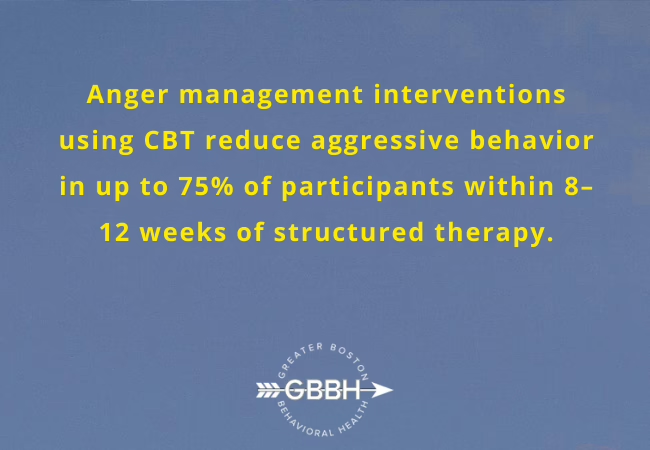Mental health challenges don’t all look the same—so treatment shouldn’t either. From overwhelming anxiety and severe depression to trauma recovery and emotional regulation, people face a wide range of symptoms that require different levels of care. That’s why mental health treatment exists on a continuum, with varying programs tailored to each phase of recovery.
At Greater Boston Behavioral Health, we provide a full array of mental health programs in Massachusetts, guiding clients through every step of their healing journey. This comprehensive guide breaks down the different types of care we offer—so you can find the right support, at the right time.
1. Inpatient Treatment Program in Massachusetts
Best For: Individuals in psychiatric crisis or needing 24/7 stabilization
An inpatient treatment program in Massachusetts offers the highest level of psychiatric care in a secure hospital environment. It is primarily used during acute mental health emergencies such as:
- Suicidal ideation or recent suicide attempt
- Self-harm or aggressive behaviors
- Severe psychosis or delusions
- Severe manic or depressive episodes
- Need for medically monitored detoxification
Key Features:
- 24/7 medical and psychiatric monitoring
- Immediate crisis stabilization
- Rapid medication initiation or adjustment
- Structured group and individual therapy
- Care planning for step-down services like PHP or IOP
Length of stay: Short-term (typically 5–10 days)
Inpatient care is life-saving—but once stabilized, patients often continue their journey in a partial hospitalization program in Massachusetts.
2. Residential Treatment Program in Massachusetts
Best For: Clients needing immersive, round-the-clock therapeutic support
A residential treatment program in Massachusetts offers a longer-term option for those who are not in immediate crisis but still require intensive, structured care.
Who It’s For:
- Individuals with chronic mental health conditions
- Dual diagnosis clients (mental illness + substance use)
- People who haven’t responded well to outpatient therapy
- Those needing a break from unstable or triggering home environments
Key Features:
- 24-hour supervision in a homelike setting
- Daily therapy (individual, group, and family)
- Psychiatric and medication management
- Life skills development and vocational support
- Holistic wellness offerings: yoga, mindfulness, fitness, nutrition
Length of stay: Usually 30–90 days (can be extended based on need)
Residential programs offer the consistency and safety that many people need to build emotional regulation and life skills before stepping down to PHP or IOP.
3. Partial Hospitalization Program (PHP) in Massachusetts
Best For: Transitioning from inpatient care or avoiding hospitalization
A Partial Hospitalization Program in Massachusetts offers hospital-level care during the day, while allowing clients to return home in the evenings.
PHP is often used after:
- A recent psychiatric hospitalization
- An inpatient or residential program
- Severe episodes of depression, anxiety, trauma, or mania
- Suicide attempts or recent substance relapse
Key Features:
- 5–6 hours of care per day, 5 days a week
- Group therapy, individual sessions, and psychiatric support
- Crisis prevention and symptom stabilization
- Medication management and case coordination
- Family therapy and life skills workshops
Goal: Stabilize clients while building resilience and preparing for more autonomy in an IOP setting.
4. Intensive Outpatient Program (IOP) in Massachusetts
Best For: Maintaining support while reintegrating into daily life
An Intensive Outpatient Program in Massachusetts is ideal for individuals who are either stepping down from PHP or need more structured support than weekly therapy alone.
IOP allows clients to live at home, work, or attend school while receiving treatment. It provides a critical middle ground between high-intensity care and full independence.
Typical Structure:
- 3–5 days per week
- 3–4 hours of treatment per day
- Continued access to therapy and psychiatric care
- Peer group support and real-life application of coping skills
- Specialized services such as anger management therapy in Massachusetts
IOP builds empowerment through flexibility, routine, and consistent clinical connection.
5. Traditional Outpatient Therapy
Best For: Ongoing maintenance or mild to moderate symptoms
Outpatient therapy is a common entry point for mental health treatment and a crucial aftercare step once intensive programs are completed. It usually involves:
- 1–2 therapy sessions per week
- Optional psychiatry/medication appointments
- Long-term emotional support and skill reinforcement
Outpatient care is appropriate for people dealing with:
- Mild depression or anxiety
- Grief, trauma processing, or life transitions
- Relationship issues
- Post-treatment relapse prevention
While less intensive than PHP or IOP, mental therapy programs in Massachusetts like ours ensure outpatient services are still robust, individualized, and connected to your larger treatment goals.
6. Anger Management Therapy in Massachusetts
Best For: Individuals struggling with emotional outbursts, aggression, or conflict resolution
Unmanaged anger can damage relationships, careers, and health. That’s why anger management therapy in Massachusetts is an essential component of our mental health services.
It’s offered as:
- A stand-alone outpatient track
- An IOP group specialty module
- A supplementary component in dual diagnosis or trauma care
Therapy Focus:
- Recognizing anger triggers and early signs
- Differentiating anger from underlying emotions
- Practicing assertive (not aggressive) communication
- Learning relaxation and de-escalation techniques
- Replacing destructive behaviors with constructive ones
This track is particularly helpful for individuals managing PTSD, BPD, ADHD, or unresolved trauma.
How to Choose the Right Mental Health Program for You
Consider These Questions:
- Are you currently in crisis or unsafe? → Inpatient treatment program
- Do you need immersive, long-term therapy and structure? → Residential treatment program
- Are you stabilizing after a crisis and need full-day support? → Partial hospitalization program
- Can you manage part of your day independently but still need therapy? → Intensive outpatient program
- Are your symptoms mild, or are you ready for maintenance care? → Outpatient therapy
- Do you struggle specifically with emotional regulation or conflict? → Anger management therapy
You don’t need to figure it out alone. At Greater Boston Behavioral Health, we assess your needs and help you enter the most appropriate program within our continuum of mental health programs in Massachusetts.
Why the Continuum of Care Matters
The recovery process isn’t linear—it involves stepping up, stepping down, and finding the right rhythm. That’s why a full-spectrum mental health treatment model is so effective.
Benefits of Matching Care Level to Client Need:
- Lower risk of relapse or crisis
- Higher treatment retention and engagement
- More personalized care and measurable progress
- Smoother transitions between stages of recovery
- Better overall quality of life and functioning
Why Levels of Care Matter
Research shows that matching individuals with the appropriate level of care leads to:
-
Better treatment engagement
-
Faster recovery times
-
Reduced risk of relapse or hospitalization
-
Improved overall functioning
A continuum of care—starting with higher-intensity programs and stepping down as progress is made—leads to more sustainable long-term outcomes.
Why Choose Greater Boston Behavioral Health?
At our leading mental health treatment center in Massachusetts, you get more than therapy—you get a comprehensive support system designed to evolve with your needs.
Our Promise:
- Full spectrum of care: inpatient referrals, PHP, IOP, outpatient, and specialty tracks
- Expert clinicians trained in trauma, dual diagnosis, and behavioral health
- Personalized treatment planning and care coordination
- Specialized programs like anger management therapy in Massachusetts
- Flexible scheduling with in-person and virtual options
- Inclusive, affirming care for all identities and backgrounds
No matter where you are on your journey, we’re ready to meet you there—and help you move forward.
Conclusion
Mental health recovery starts with clarity—and that begins by finding the program that fits your life, goals, and healing process. Call Greater Boston Behavioral Health at 888.278.0716 to schedule a confidential, no-pressure assessment. We’re here to guide you toward lasting change—one step, and one program, at a time.
FAQ on Mental Health Programs and Choosing the Right Level of Care
What is the difference between inpatient and residential mental health programs?
Inpatient treatment programs in Massachusetts are typically short-term and focused on crisis stabilization, often in a hospital setting. Residential treatment programs offer longer-term care in a therapeutic, non-hospital environment for individuals who need consistent support but are not in immediate crisis.
Who should consider a Partial Hospitalization Program (PHP)?
A partial hospitalization program in Massachusetts is ideal for people transitioning out of inpatient care or experiencing symptoms too severe for outpatient therapy. It offers full-day treatment while allowing clients to return home each night.
How is IOP different from PHP?
An Intensive Outpatient Program in Massachusetts (IOP) is less time-intensive than PHP—typically 3–5 days a week for 3–4 hours per day. It offers structured therapy while allowing clients to maintain work, school, or caregiving responsibilities.
What types of therapy are included in outpatient programs?
Outpatient care may include individual therapy, group sessions, family counseling, and medication management. At Greater Boston Behavioral Health, we tailor our mental therapy programs in Massachusetts to fit each client’s unique needs.
When is anger management therapy recommended?
Anger management therapy in Massachusetts is recommended for individuals struggling with emotional regulation, outbursts, interpersonal conflict, or legal issues related to aggressive behavior. It can be integrated into IOP, PHP, or outpatient programs.


